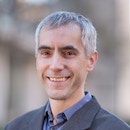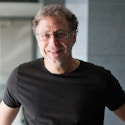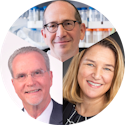On 22 February 2017, Mark Zylka described how candidate environmental risk factors for autism can be identified rationally, by pinpointing chemicals that interfere with the same molecular pathways that are affected in individuals with autism.
His talk was part of the Simons Foundation Autism Research lecture series.
About the Lecture
Our inability to identify environmental threats to the brain early — before they cause disease — represents one of the major challenges of our time. This challenge is particularly relevant to autism, which affects 1 in 68 individuals. Heritability studies indicate that environmental factors contribute to autism risk.
In this lecture, Mark Zylka described how candidate environmental risk factors for autism can be identified rationally, by pinpointing chemicals that interfere with the same molecular pathways that are affected in individuals with autism. His research focuses on identifying environmental-use chemicals that target autism-linked molecular pathways, using environmental sampling data to assess the exposure threat to people, and validating risk potential in animal models.




